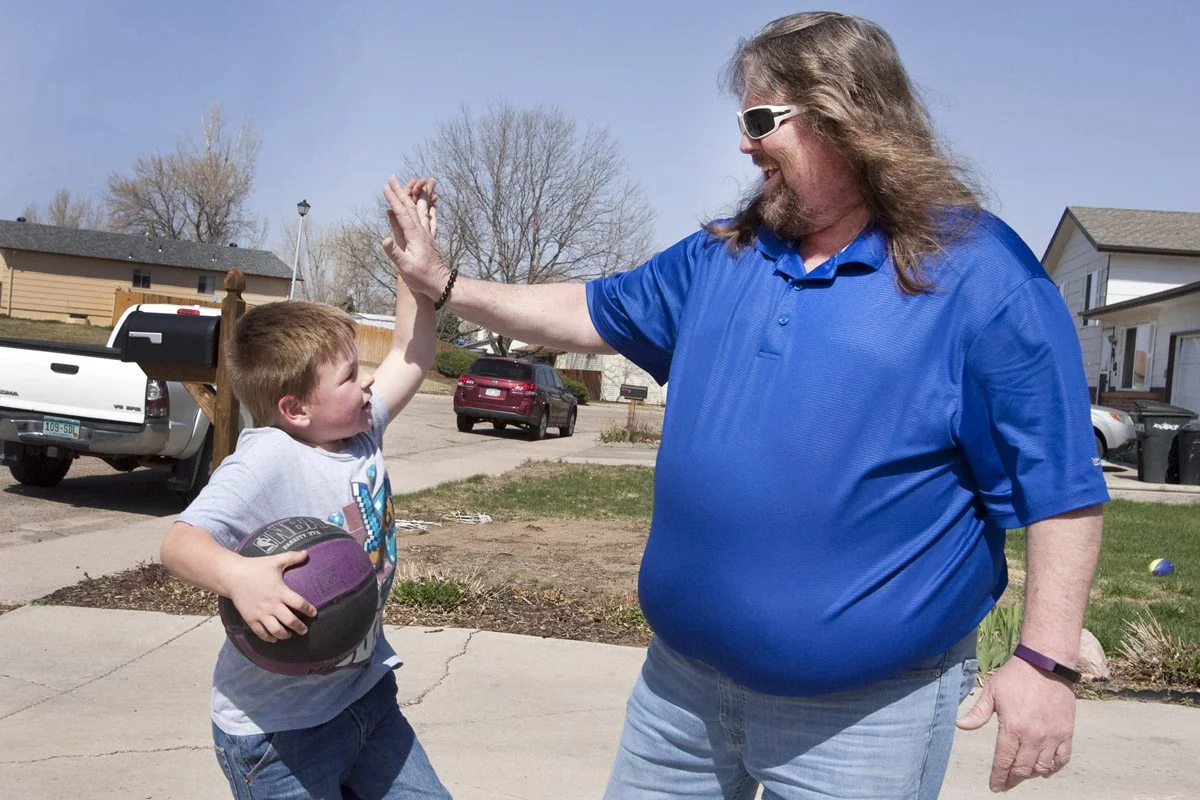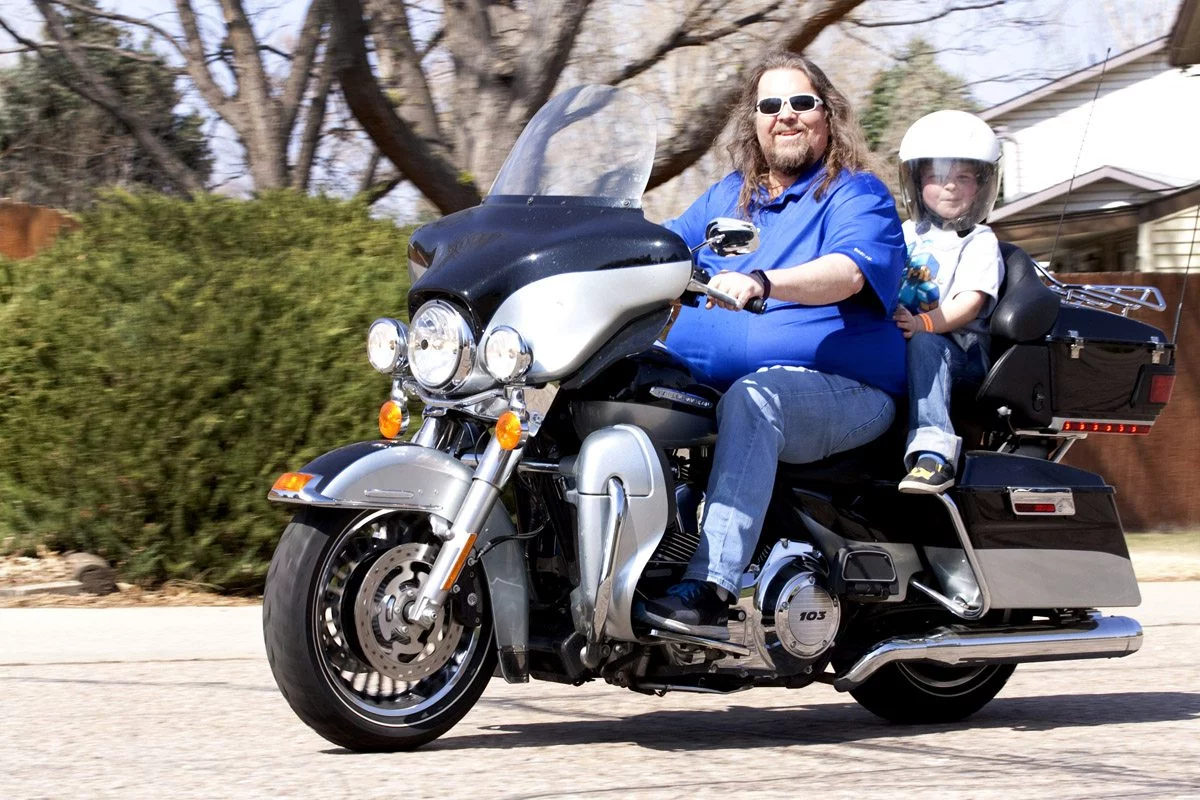
On a sunny March day, K99’s morning guy, Brian Gary, picked up his 6-year-old grandson from school and the two headed home on his motorcycle to play basketball in the driveway — something the 51-year-old radio man would not have done four months ago.
“I was the walking dead,” Gary said. “I’d try to find the energy to play with my grandchildren, but I just didn’t have the strength.”
Extreme exhaustion, anxiety, and stress had been a part of Gary’s life for the past 20 years. As a morning DJ, he’d arrive at work about 3 a.m. and get home just before lunch. He loved his job, but each morning he’d find himself sitting on the edge of his bed in tears trying to conjure up the strength to make it through another day.
Get help with sleep apnea “I was mentally and physically exhausted even before I got out of bed,” he said. “I figured it was a part of getting older, and I was just on my way to dying.” What he didn’t realize at the time was that a better path was only a sleep study away. “I wish I could have rolled back time and done this 20 years ago,” Gary said. “I may not have had my heart attack.” People who get insufficient sleep are more likely to suffer from chronic diseases such as high blood pressure, diabetes, depression, and obesity, as well as from cancer, increased mortality and reduced quality of life and productivity, according to the Centers for Disease Control and Prevention. Gary knew of these issues all too well. He was diagnosed with diabetes at 30, had a heart attack at age 41, and has been taking medication for anxiety and panic attacks for more than a decade. “I’d go to the grocery store and just sit in the car,” he said. “I didn’t have the strength to go in and walk around or talk to people.” Even vacations were often cut short by panic attacks or avoided altogether. “I was robbing my family of me,” he said. Gary had no doubt he had sleep apnea — a condition in which breathing stops or becomes shallow during sleep. He wrote about sleep — and the lack thereof — in many of his K99 Brian’s Blog posts. In one he stated, “I have been flat-out exhausted since the ‘90s.” In October 2016, Gary finally took the advice of his primary care provider, Dr. Brian Schmalhorst, and that of his brother, who had been telling Gary for years how a sleep study changed his life. “At our UCHealth Sleep Disorders Center, we can monitor whether someone is awake or not, and if asleep, if they are going through the stages of sleep as expected,” said Cindy Crosby, director of sleep services for UCHealth in northern Colorado. “We are also monitoring the heart — looking for arrhythmias — and monitoring air flow and how much effort is put into breathing.” Sleep studies are done in the center’s lab, which looks like a small hotel room that has monitoring equipment. Gary arrived a few hours before his normal bedtime, about 8 p.m. “They explained everything to me,” he said. “They spoke to me about what sleep apnea is, its causes and what it does to the body — the shock it does to your body. Hearing it made sense with all the ailments I’d been going through.” Gary lay down, was hooked up to the sensors, and the next thing he knew it was time to get up and go to work, he said. But things looked much different on the other side of the sleep study wall. Gary actually showed an Apnea-Hypopnea Index of 87.3, which is the number of times per hour he stopped breathing or had a reduction in air flow greater than 10 seconds with blood-oxygen levels to decrease by greater than 4 percent and the brain to wake up. An index greater than 30 is classified as severe apnea, Crosby said. In about a week, Gary was fitted for a continuous positive airway pressure, or CPAP, machine — the gold standard treatment for sleep apnea. The CPAP machine supplies constant and steady air pressure through a hose and mask, and is effective in treating sleep apnea more than 90 percent of the time. For Gary, it was more than effective, it was life-changing. “It’s renewed me and lifted me up,” Gary said after four months into using CPAP. “I was a total nonbeliever. I had huge concerns that there was no way I could sleep with something on my face but was amazed at how easy, comfortable and nonintrusive it is.” Gary said the process cost “next to nothing” since the study and CPAP were covered by insurance. But knowing what he knows today, he said he would have found the money to get on CPAP no matter what because of the positive effect it’s had on his life and health. Since starting CPAP, Gary’s apnea index reading has only crept above one a few times. He hasn’t had a panic attack, and for the first time in his life, he wants to move, which he believes will translate to improvements in other aspects of his health. “I sit in a chair and behind walls for a lot of my day, but now I find myself standing and being on my feet more — wanting to get up and move. I feel like I need to, and I haven’t felt like I needed to get up for 20 years,” Gary said. “I’m playing with my grandkids and being a functional human rather than something that just breathes. I’m going to live the rest of my life, not just get through it.”



